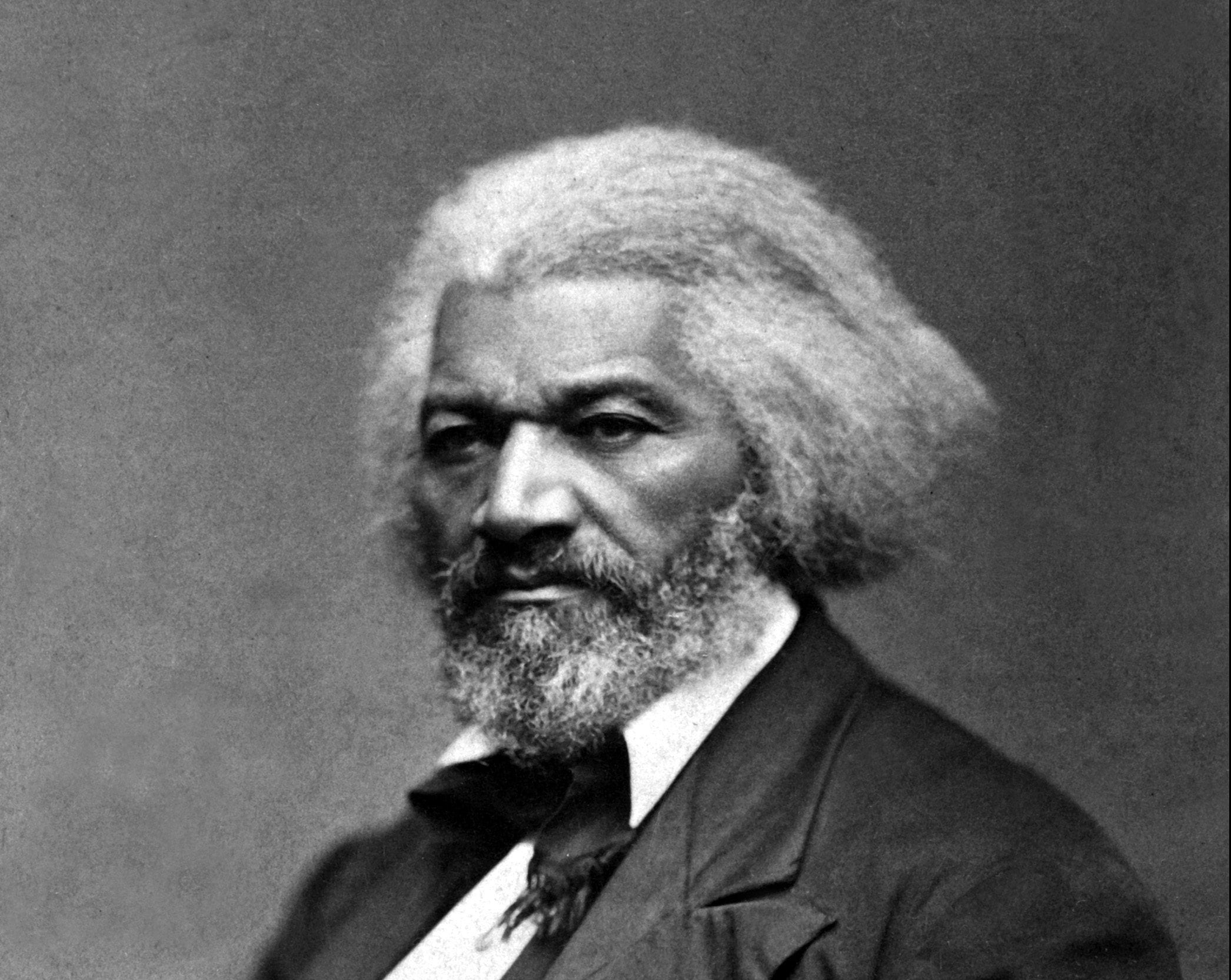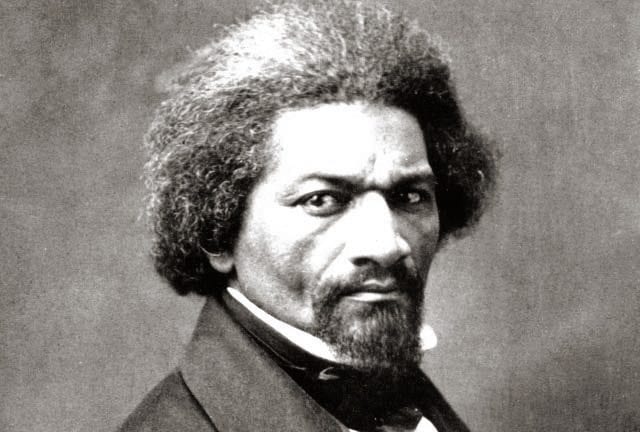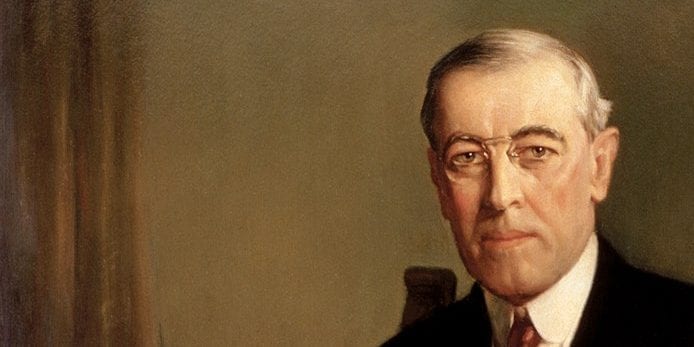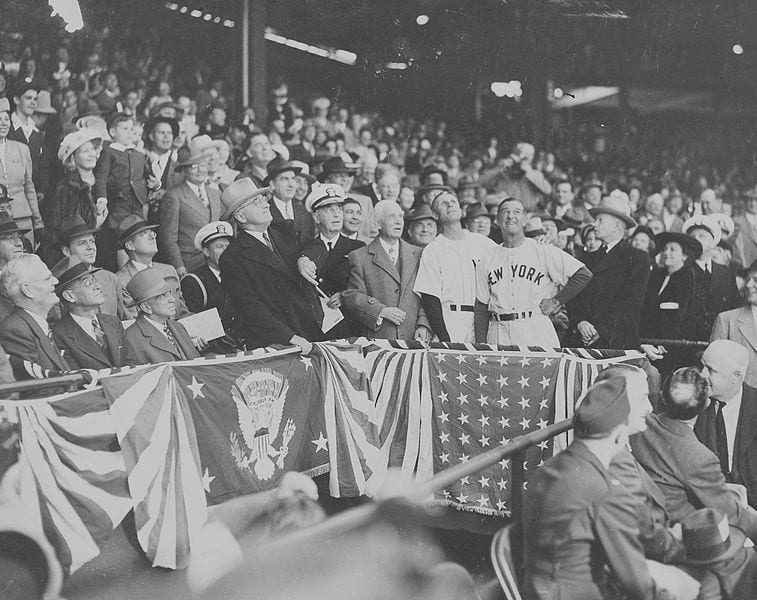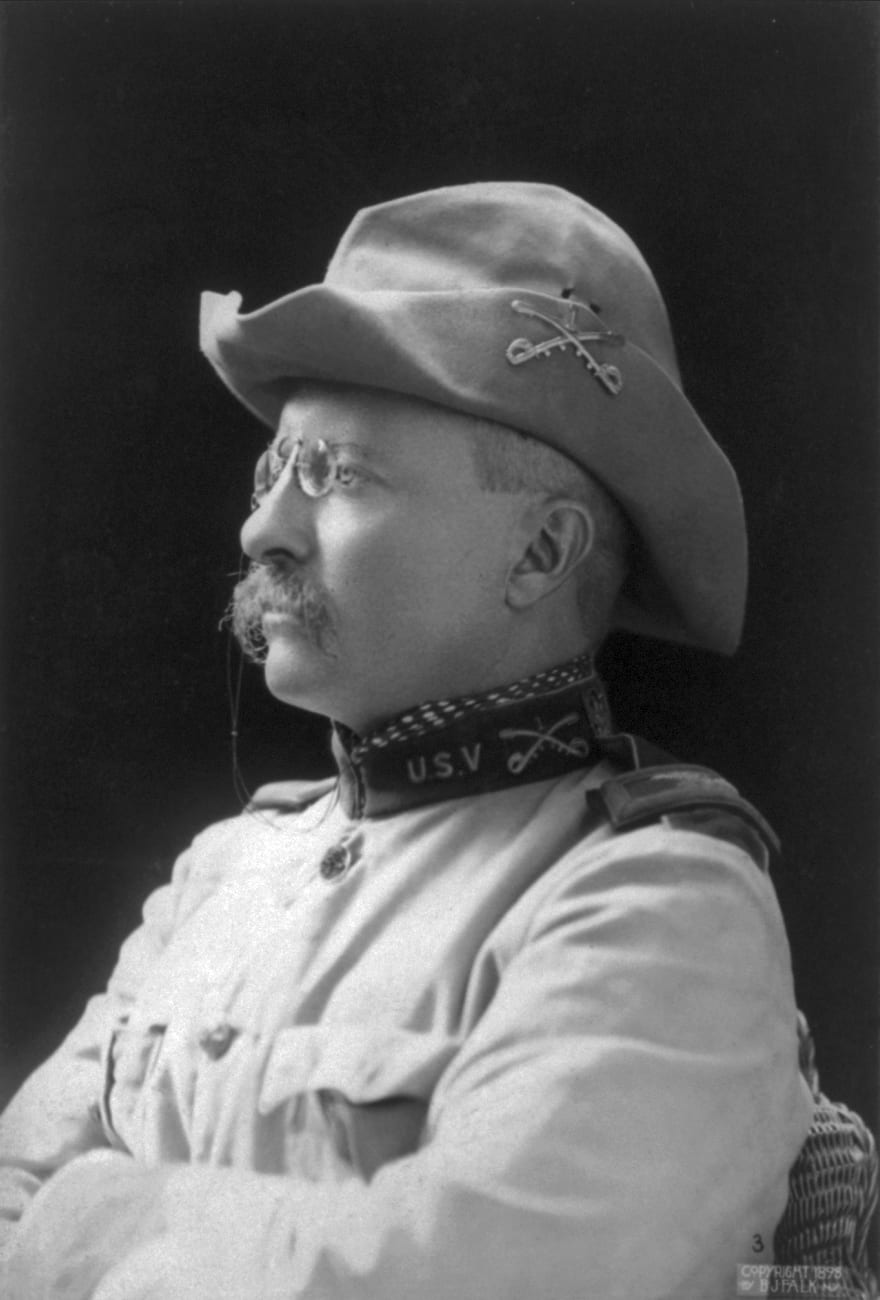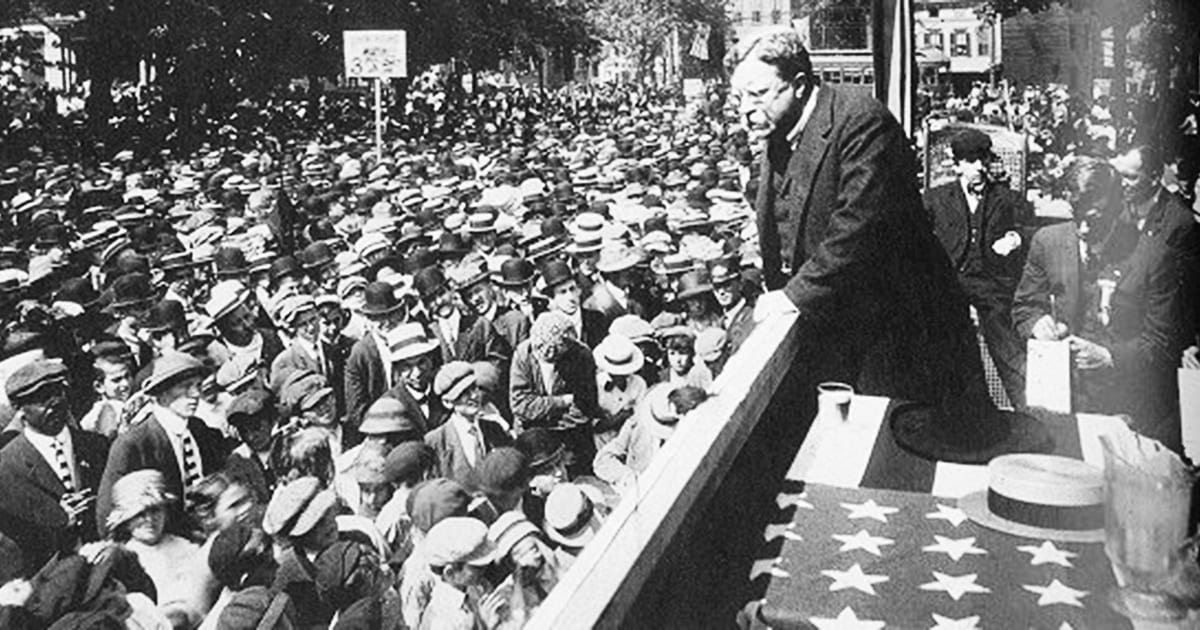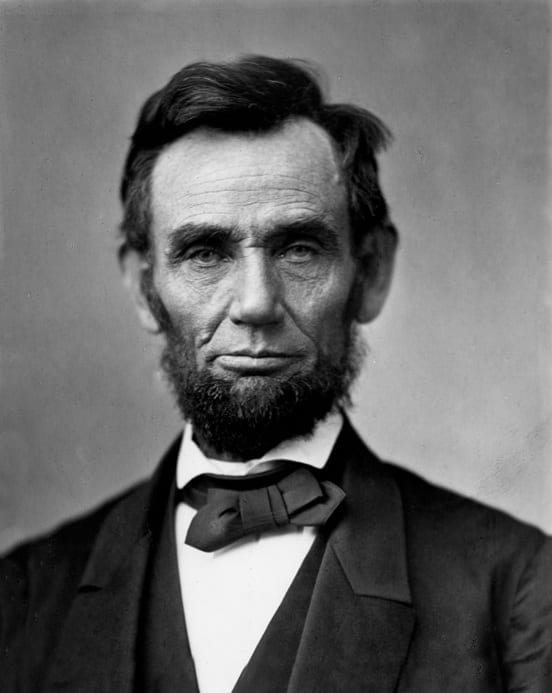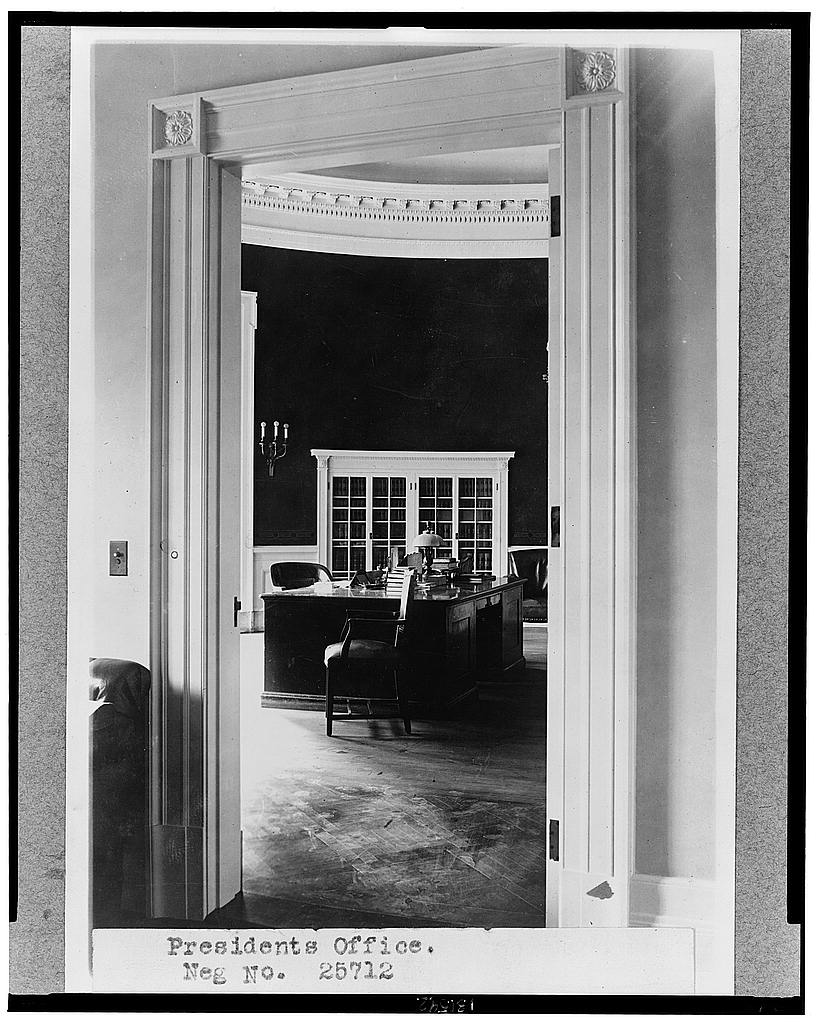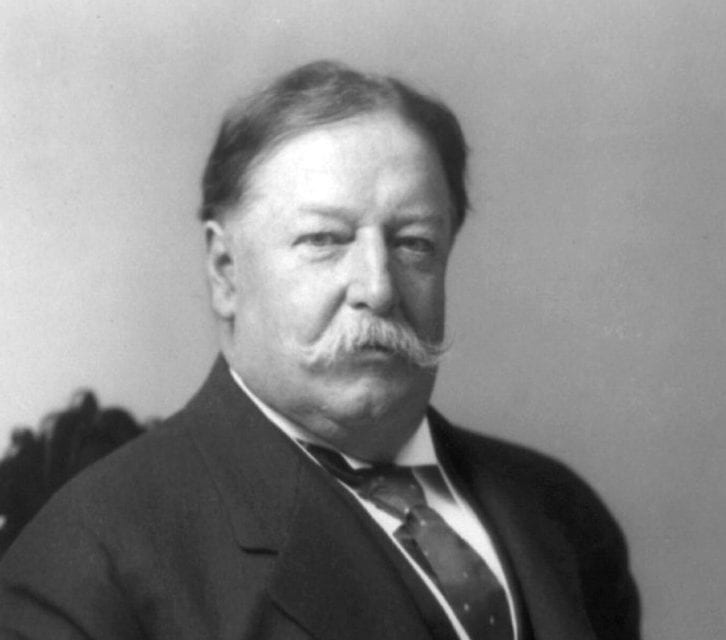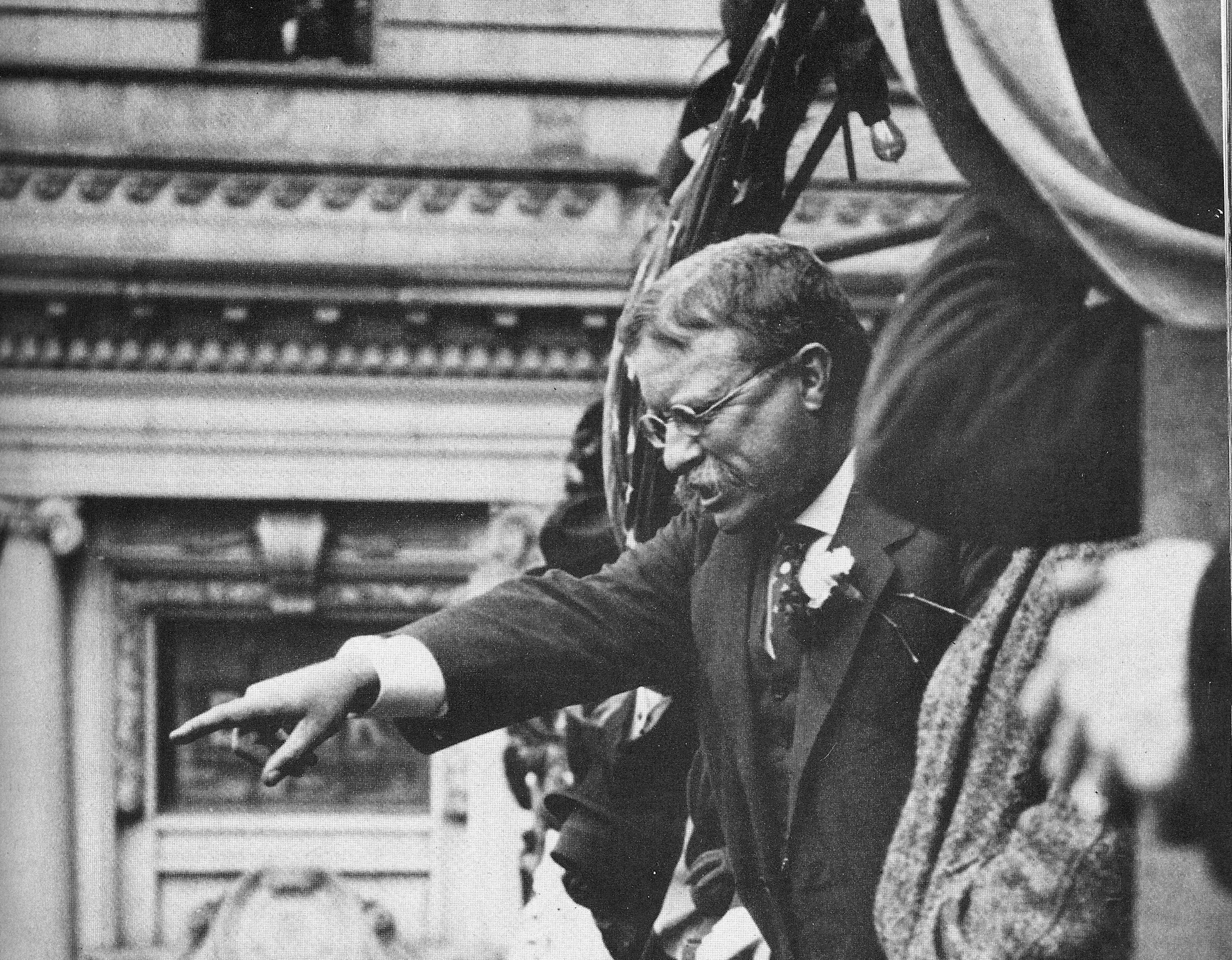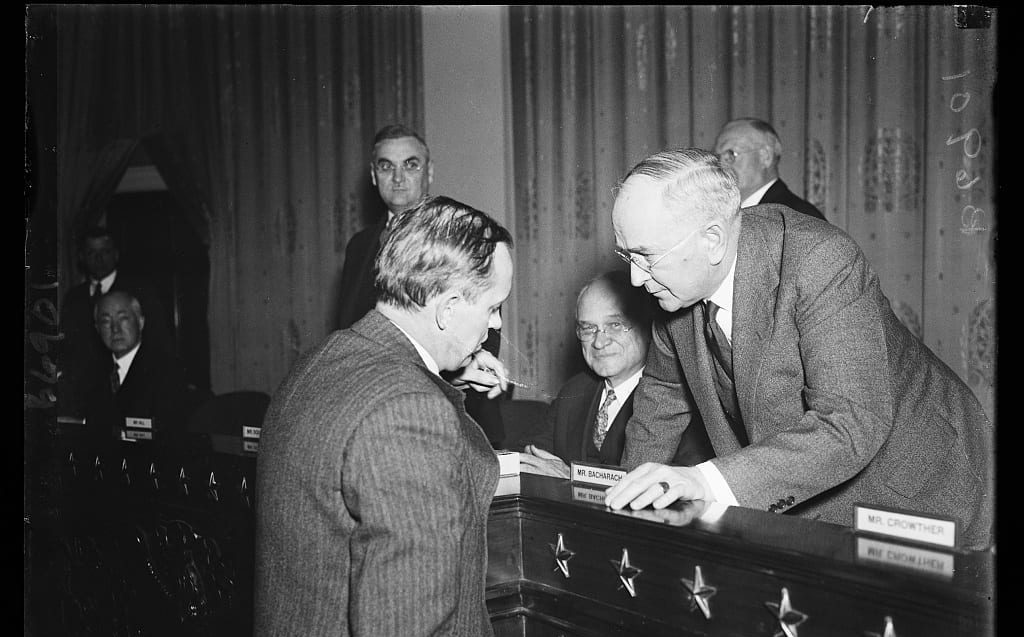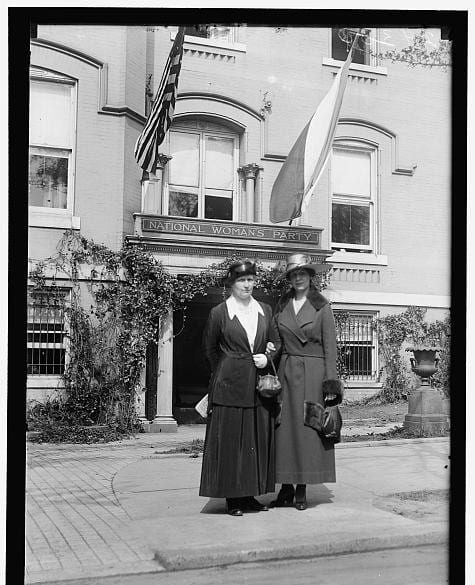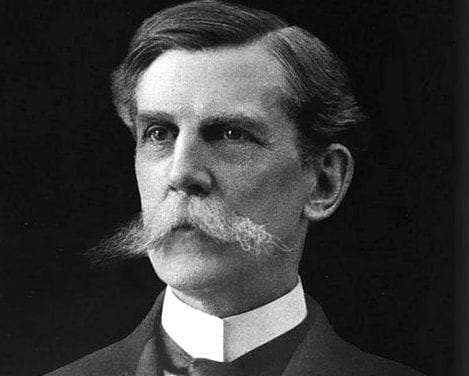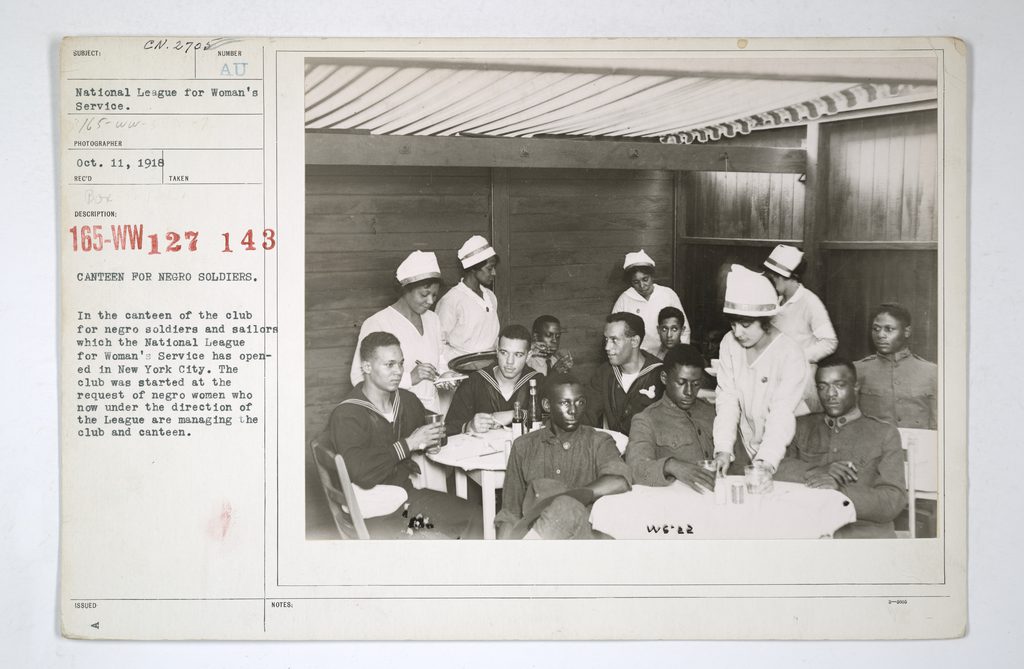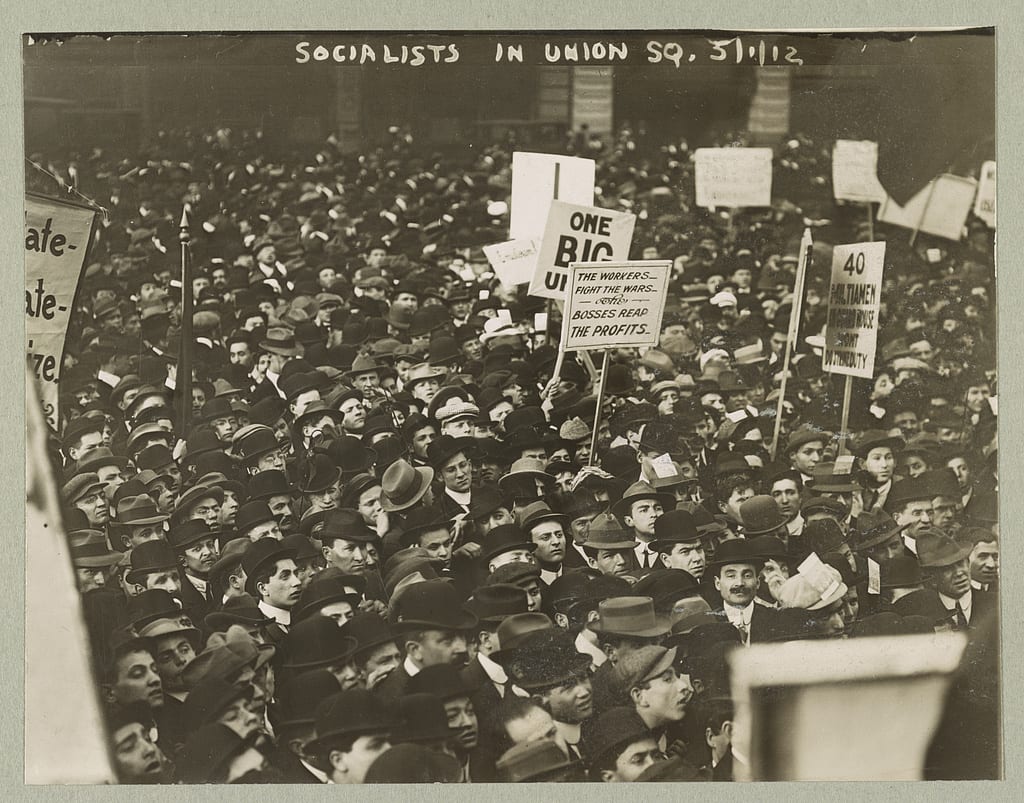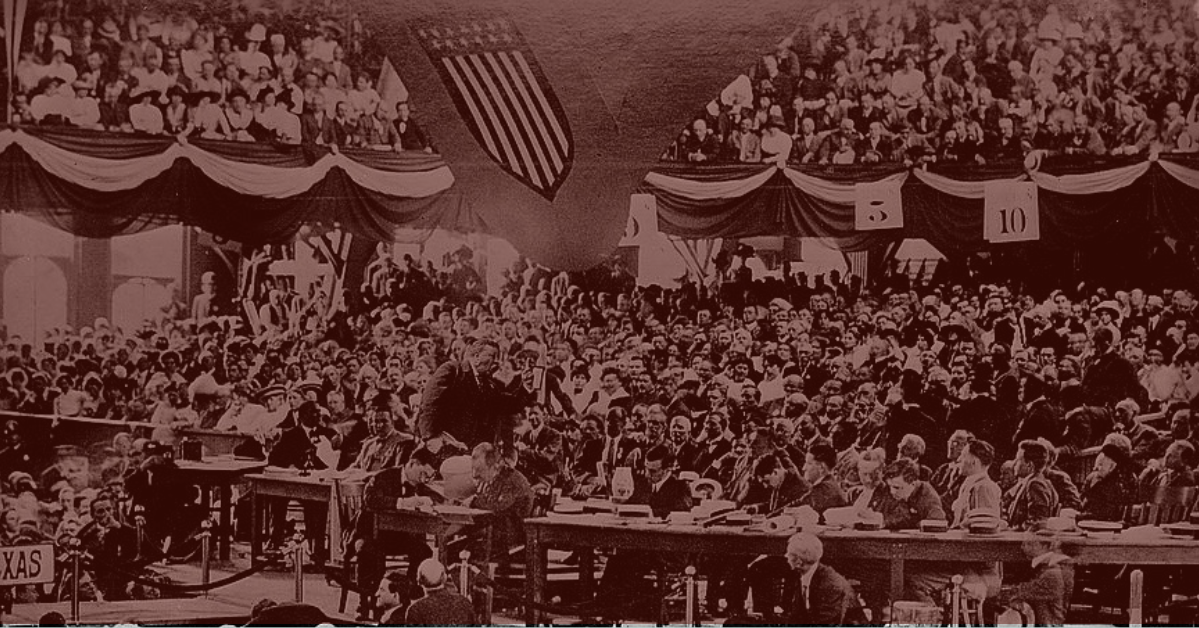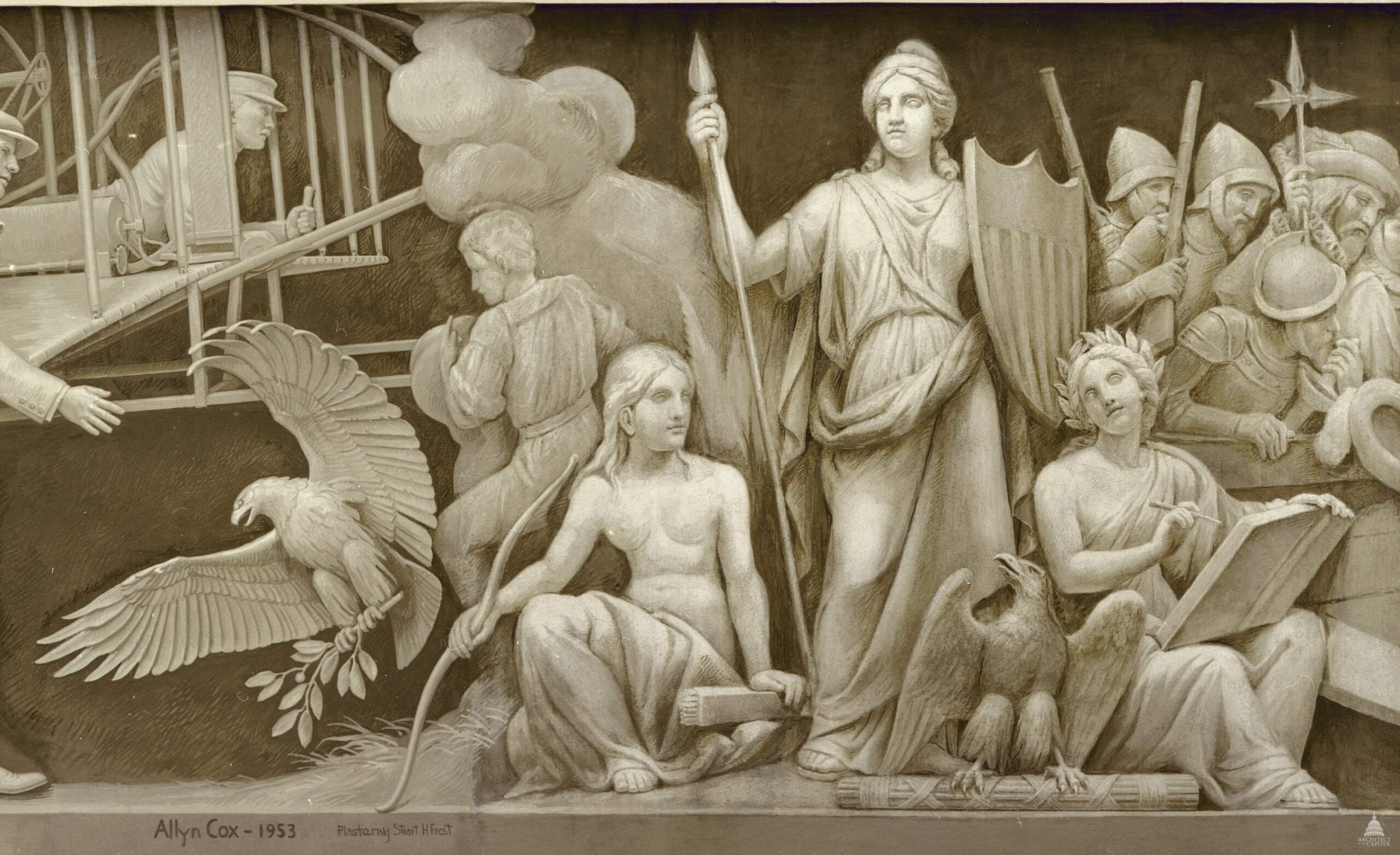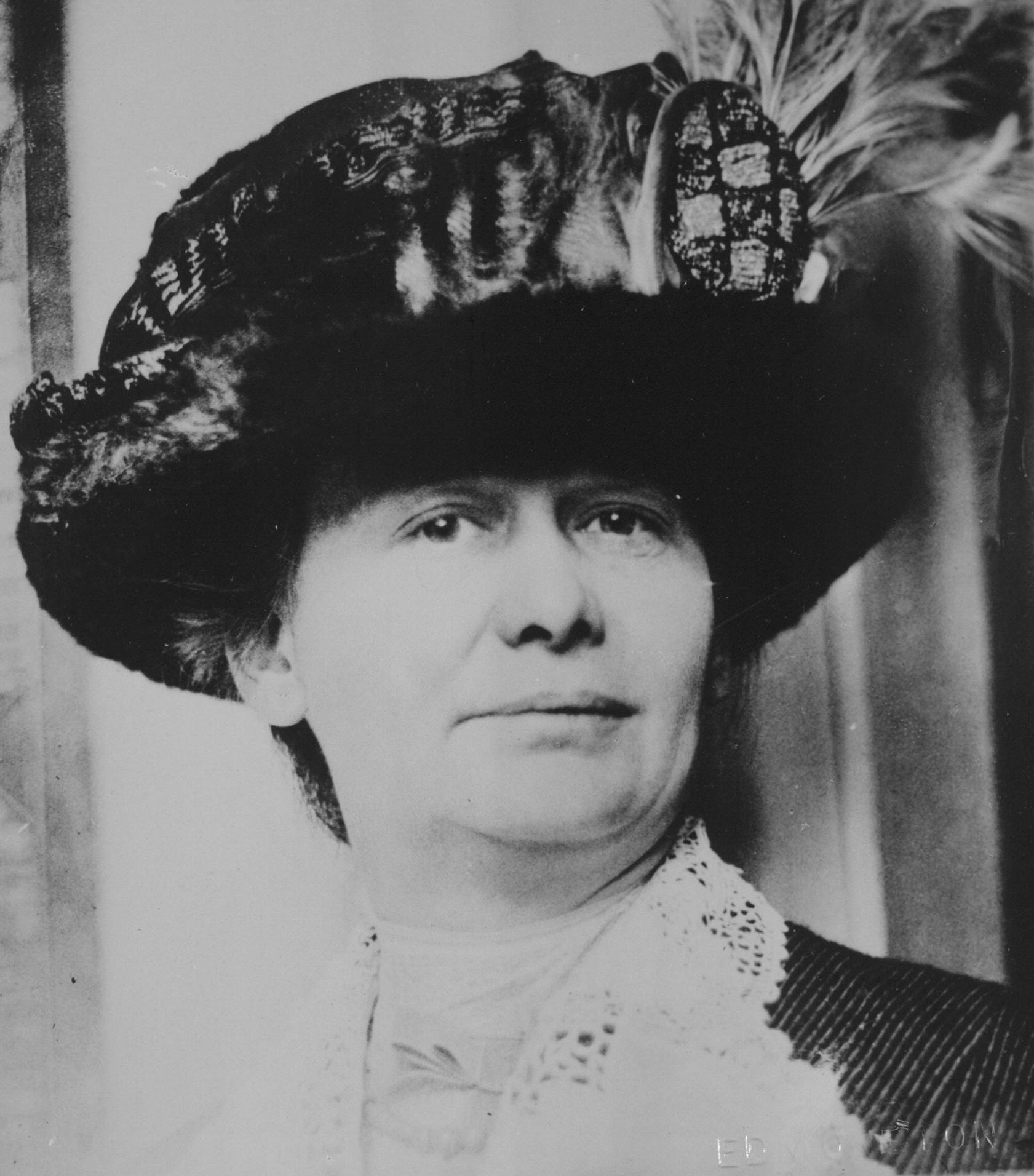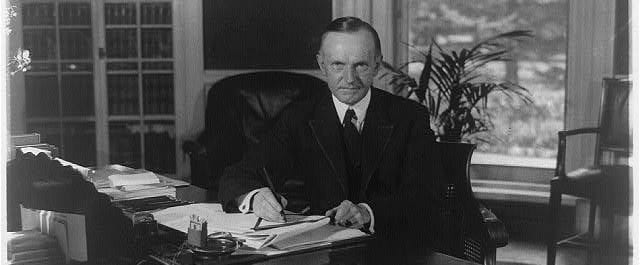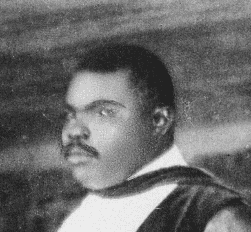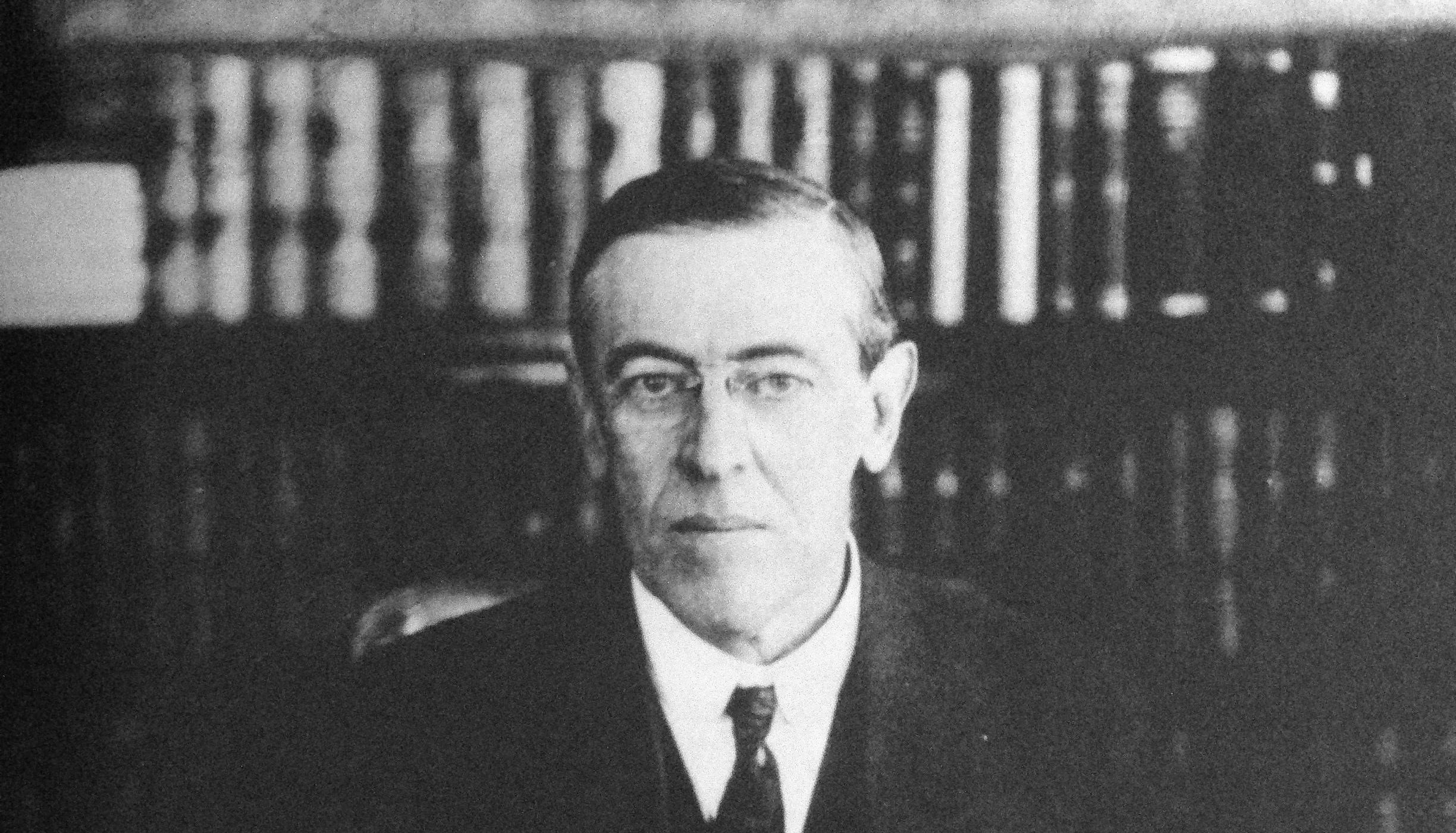
No study questions
No related resources
Mr. Chairman, Ladies and Gentlemen: You ask that which he found a piece of property and turned into a free American citizen to speak to you tonight on Abraham Lincoln. I am not fitted by ancestry or training to be your teacher tonight for, as I have stated, I was born a slave.
My first knowledge of Abraham Lincoln came in this way: I was awakened early one morning before the dawn of day, as I lay wrapped in a bundle of rags on the dirt floor of our slave cabin, by the prayers of my mother, just before leaving for her day’s work, as she was kneeling over my body earnestly praying that Abraham Lincoln might succeed, and that one day she and her boy might be free. You give me the opportunity here this evening to celebrate with you and the nation the answer to that prayer.
Says the Great Book somewhere, “Though a man die, yet shall he live.” If this is true of the ordinary man, how much more true is it of the hero of the hour and the hero of the century — Abraham Lincoln! One hundred years of the life and influence of Lincoln is the story of the struggles, the trials, ambitions, and triumphs of the people of our complex American civilization. Interwoven into the warp and woof of this human complexity is the moving story of men and women of nearly every race and color in their progress from slavery to freedom, from poverty to wealth, from weakness to power, from ignorance to intelligence. Knit into the life of Abraham Lincoln is the story and success of the nation in the blending of all tongues, religions, colors, races into one composite nation, leaving each group and race free to live its own separate social life, and yet all a part of the great whole.
If a man die, shall he live? Answering this question as applied to our martyred President, perhaps you expect me to confine my words of appreciation to the great boon which, through him, was conferred upon my race. My undying gratitude and that of ten millions of my race for this and yet more! To have been the instrument used by Providence through which four millions of slaves, now grown into ten millions of free citizens, were made free would bring eternal fame within itself, but this is not the only claim that Lincoln has upon our sense of gratitude and appreciation.
By the side of Armstrong and Garrison, Lincoln lives today. In the very highest sense he lives in the present more potently than fifty years ago; for that which is seen is temporal, that which is unseen is eternal. He lives in the 32,000 young men and women of the Negro race learning trades and useful occupations; in the 200,000 farms acquired by those he freed; in the more than 400,000 homes built; in the forty-six banks established and 10,000 stores owned; in the $550,000,000 worth of taxable property in hand; in the 28,000 public schools existing, with 30,000 teachers; in the 170 industrial schools and colleges; in the 23,000 ministers and 26,000 churches.
But, above all this, he lives in the steady and unalterable determination of ten millions of black citizens to continue to climb year by year the ladder of the highest usefulness and to perfect themselves in strong, robust character. For making all this possible, Lincoln lives.
But, again, for a higher reason he lives tonight in every corner of the republic. To set the physical man free is much. To set the spiritual man free is more. So often the keeper is on the inside of the prison bars and the prisoner on the outside.
As an individual, grateful as I am to Lincoln for freedom of body, my gratitude is still greater for freedom of soul — the liberty which permits one to live up in that atmosphere where he refuses to permit sectional or racial hatred to drag down, to warp and narrow his soul.
The signing of the Emancipation Proclamation was a great event, and yet it was but the symbol of another, still greater and more momentous. We who celebrate this anniversary should not forget that the same pen that gave freedom to four millions of African slaves at the same time struck the shackles from the souls of twenty-seven millions of Americans of another color.
In any country, regardless of what its laws say, wherever people act upon the idea that the disadvantage of one man is the good of another, there slavery exists. Wherever in any country the whole people feel that the happiness of all is dependent upon the happiness of the weakest, there freedom exists.
In abolishing slavery, Lincoln proclaimed the principle that, even in the case of the humblest and weakest of mankind, the welfare of each is still the good of all. In reestablishing in this country the principle that, at bottom, the interests of humanity and of the individual are one, he freed men’s souls from spiritual bondage; he freed them to mutual helpfulness. Henceforth no man of any race, either in the North or in the South, need feel constrained to fear or hate his brother.
By the same token that Lincoln made America free, he pushed back the boundaries of freedom everywhere, gave the spirit of liberty a wider influence throughout the world, and reestablished the dignity of man as man.
By the same act that freed my race, he said to the civilized and uncivilized world that man everywhere must be free, and that man everywhere must be enlightened, and the Lincoln spirit of freedom and fair play will never cease to spread and grow in power till throughout the world all men shall know the truth, and the truth shall make them free.
Lincoln in his day was wise enough to recognize that which is true in the present and for all time: that in a state of slavery and ignorance man renders the lowest and most costly form of service to his fellows. In a state of freedom and enlightenment he renders the highest and most helpful form of service.
The world is fast learning that of all forms of slavery there is none that is so harmful and degrading as that form of slavery which tempts one human being to hate another by reason of his race or color. One man cannot hold another man down in the ditch without remaining down in the ditch with him. One who goes through life with his eyes closed against all that is good in another race is weakened and circumscribed, as one who fights in a battle with one hand tied behind him. Lincoln was in the truest sense great because he unfettered himself. He climbed up out of the valley, where his vision was narrowed and weakened by the fog and miasma, onto the mountain top, where in a pure and unclouded atmosphere he could see the truth which enabled him to rate all men at their true worth. Growing out of this anniversary season and atmosphere, may there crystallize a resolve throughout the nation that on such a mountain the American people will strive to live.
We owe, then, to Lincoln physical freedom, moral freedom, and yet this is not all. There is a debt of gratitude which we as individuals, no matter of what race or nation, must recognize as due Abraham Lincoln — not for what he did as chief executive of the nation, but for what he did as a man. In his rise from the most abject poverty and ignorance to a position of high usefulness and power, he taught the world one of the greatest of all lessons. In fighting his own battle up from obscurity and squalor, he fought the battle of every other individual and race that is down, and so helped to pull up every other human who was down. People so often forget that by every inch that the lowest man crawls up he makes it easier for every other man to get up. Today, throughout the world, because Lincoln lived, struggled, and triumphed, every boy who is ignorant, is in poverty, is despised or discouraged, holds his head a little higher. His heart beats a little faster, his ambition to do something and be something is a little stronger, because Lincoln blazed the way.
To my race, the life of Abraham Lincoln has its special lesson at this point in our career. In so far as his life emphasizes patience, long suffering, sincerity, naturalness, dogged determination, and courage — courage to avoid the superficial, courage to persistently seek the substance instead of the shadow — it points the road for my people to travel.
As a race we are learning, I believe, in an increasing degree that the best way for us to honor the memory of our Emancipator is by seeking to imitate him. Like Lincoln, the Negro race should seek to be simple, without bigotry and without ostentation. There is great power in simplicity. We as a race should, like Lincoln, have moral courage to be what we are, and not pretend to be what we are not. We should keep in mind that no one can degrade us except ourselves; that if we are worthy, no influence can defeat us. Like other races, the Negro will often meet obstacles, often be sorely tried and tempted; but we must keep in mind that freedom, in the broadest and highest sense, has never been a bequest; it has been a conquest.
In the final test, the success of our race will be in proportion to the service that it renders to the world. In the long run, the badge of service is the badge of sovereignty.
With all his other elements of strength, Abraham Lincoln possessed in the highest degree patience and, as I have said, courage. The highest form of courage is not always that exhibited on the battlefield in the midst of the blare of trumpets and the waving of banners. The highest courage is of the Lincoln kind. It is the same kind of courage, made possible by the new life and the new possibilities furnished by Lincoln’s Proclamation, displayed by thousands of men and women of my race every year who are going out from Tuskegee and other Negro institutions in the South to lift up their fellows. When they go, often into lonely and secluded districts, with little thought of salary, with little thought of personal welfare, no drums beat, no banners fly, no friends stand by to cheer them on; but these brave young souls who are erecting schoolhouses, creating school systems, prolonging school terms, teaching the people to buy homes, build houses, and live decent lives are fighting the battles of this country just as truly and bravely as any persons who go forth to fight battles against a foreign foe.
In paying my tribute of respect to the Great Emancipator of my race, I desire to say a word hear and now in behalf of an element of brave and true white men of the South who, though they saw in Lincoln’s policy the ruin of all they believed in and hoped for, have loyally accepted the results of the Civil War, and are today working with a courage few people in the North can understand to uplift the Negro in the South and complete the emancipation that Lincoln began. I am tempted to say that it certainly required as high a degree of courage for men of the type of Robert E. Lee and John B. Gordon to accept the results of the war in the manner and spirit in which they did, as that which Grant and Sherman displayed in fighting the physical battles that saved the Union.
Lincoln was also a Southern man by birth, but he was one of those white men, of whom there is a large and growing class, who resented the idea that in order to assert and maintain the superiority of the Anglo-Saxon race it was necessary that another group of humanity should be kept in ignorance.
Lincoln was not afraid or ashamed to come into contact with the lowly of all races. His reputation and social position were not of such a transitory and transparent kind that he was afraid that he would lose them by being just and kind0, even to a man of dark skin. I always pity from the bottom of my heart any man who feels that somebody else must be kept down or in ignorance in order that he may appear great by comparison. It requires no courage for a strong man to kick a weak one down.
Lincoln lives today because he had the courage which made him refuse to hate the man at the South or the man at the North when they did not agree with him. He had the courage as well as the patience and foresight to suffer in silence, to be misunderstood, to be abused, to refuse to revile when reviled. For he knew that, if he was right, the ridicule of today whould be the applause of tomorrow. He knew, too, that at some time in the distant future our nation would repent of the folly of cursing our public servants while they live and blessing them only when they die. In this connection I cannot refrain from suggesting the question to the millions of voices raised today in his praise: “Why did you not say it yesterday?” Yesterday, when one word of approval and gratitude would have meant so much to him in strengthening his hand and heart.
As we recall tonight his deeds and words, we can do so with grateful hearts and strong faith in the future for the spread of righteousness. The civilization of the world is going forward, not backward. Here and there for a little season of progress of mankind may seem to halt of tarry by the wayside, or even appear to slide backward, but the trend is ever onward and upward, and will be until someone can invent and enforce a law to stop the progress of civilization. In goodness and liberality the world moves forward. It goes forward beneficently, but it moves forward relentlessly. In the last analysis the forces of nature are behind the moral progress of the world, and these forces will crush into powder any group of humanity that resists this progress.
As we gather here, brothers all, in common joy and thanksgiving for the life of Lincoln, may I not ask that you, the worthy representatives of seventy millions of white Americans, join heart and hand with the ten millions of black Americans — these ten millions who speak your tongue, profess your religion — who have never lifted their voices or hands except in defense of their country’s honor and their country’s flag — and swear eternal fealty to the memory and the traditions of the sainted Lincoln? I repeat, may we not join with your race, and let all of us here highly resolve that justice, good will, and peace shall be the motto of or lives? If this be true, in the highest sense Lincoln shall not have lived and died in vain.
And, finally, gathering inspiration and encouragement from this hour and Lincoln’s life, I pledge to you and to the nation that my race, in so far as I can speak for it, which in the past, whether in ignorance or intelligence, whether in slavery or in freedom, has always been true to the Stars and Stripes and to the highest and best interests of this country, will strive to so deport itself that it shall reflect nothing but the highest credit upon the whole people in the North and in the South.
Inaugural Address (1909)
March 04, 1909
Conversation-based seminars for collegial PD, one-day and multi-day seminars, graduate credit seminars (MA degree), online and in-person.



